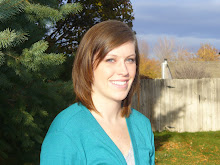I would like to clarify that in my previous blog I was not using Chris for the apostrophe example because that is the only one I know of, but because it was the one that came to mind first. I just wanted to make that clear so that everyone knows I understand the new and old ways of using the apostrophe apply not just with this particular name. I am however, not trying to be a perfectionist or anything but Barbara showed concern about this so I thought I should address it. Now that that is taken care of I will discuss what went on during this week of class.
This week was different than previous weeks. I feel that the students were more involved in the learning this week. Both Monday and Wednesday were days where the students got to do a lot more talking and were more involved.
On Monday we did Socratic seminar. This is something that I have not done in previous classes. The process is very interesting to me. There are two groups that take turns discussing a passage (in this particular case) or idea while the other group watches. The passage that our class looked at described a class that needed more use of verbs and adjectives in their writing. At first the students were told specifically use verbs and adjectives in their writing. Then the students were given examples and got to feel and smell things then write. The students writing from one piece of writing to the next were drastically different. In the passage, it argued that giving children specific instructions limited and intimidated them while giving them actual pieces to inspire them helped their writing come alive. As we discussed this in our Socratic seminar everyone had something to say. Some agreed with the passage while others thought it didn’t teach any specific lesson. It was fun to hear everyone’s opinion and to also contribute to the discussion.
On Tuesday the class was supposed to have read in our Course Packet about the different categories different verbs fit into. We learned in class, three subcategories of main verbs and sentence patterns. The three verb categories are intransitive verbs, transitive verbs, and linking verbs. Intransitive verbs are those verbs that can be by themselves meaning they don’t have to have modifiers. For example: My love grew does not need any other word. Grew is an intransitive verb because it does not need something to follow it. Transitive verbs are verbs that do need something to follow it or modify it. For example: My Dad sold cars, sold needs to have something following it to make it a complete sentence. Linking verbs are the third category that we learned on Wednesday. The linking verb is a link between the subject and the description of the subject. For example: You seem very tired, seem is linking the subject (you) to the description of the subject (tired). I knew that some verbs needed something added to complete a sentence and some verbs different things to the subject but I didn’t know what they were specifically called. In addition to learning the names of the verb categories we had to actually apply our knowledge by coming up with examples for each category.
Monday and Wednesday of this week were about the verb. During Socratic seminar we discussed how one teach used verb lessons in a classroom and on Wednesday we learned about the categories verbs can be in. It was nice to do something I have never done before with a discussion (Socratic seminar) because it helps me think about some things I could use in my own classroom in the future.
Question of the Week:
How can you tell what category a verb fits into? I know that if you put a verb into a sentence it is easier to figure out where the verb fits but is it always that easy?
P.S. I hope that this color is easier to read ;)
Subscribe to:
Post Comments (Atom)


By category I'm assuming you mean transitive or intransitive and isn't it simply that transitive verbs take a direct object (Kayden jumped a box) whereas intransitive verbs don't take a direct object (The fly flew)?
ReplyDeleteBut yes, it's always that easy and much moreso when the verb is already in the sentence. And, in a way, verbs are the most complicated word class because they're the only class with a differentiating sub-definition.